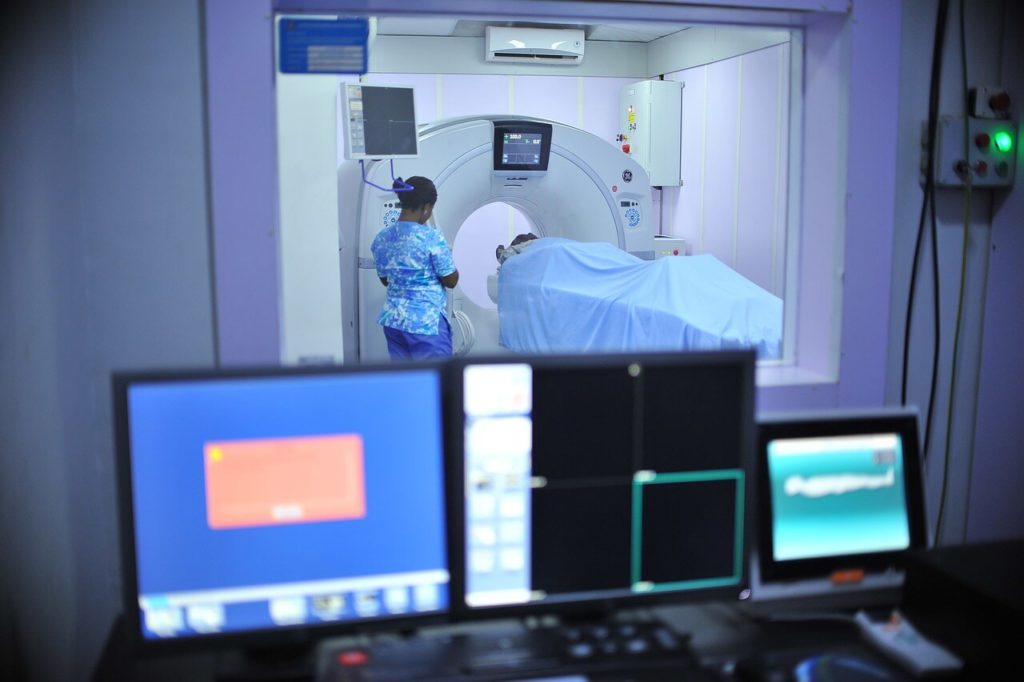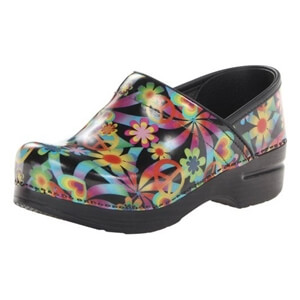Doctors and nurses work side by side throughout their careers and share many of the same challenges and successes. You may think that nurses and doctors are equally happy in the same environments, with everything else being equal.
However, the work, experience, education, pay, and many other factors differentiate nurses and doctors, so their happiness levels can be greatly different even if in the same environment.

The potential is also there that different stages of each profession can heavily impact happiness, such as nurses that quickly increase their pay after a shorter education but level out after several years.
While doctors have a much longer education requirement and can take many years to make a lot of money, pay off loans, and even start their own practice.
So, are nurses happier than doctors?
Who Is Happier: Nurses Or Doctors?
As of 2022, the nursing profession has taken a major hit on happiness. Some surveys indicate that only 12% of nurses are happy in their current roles, and 84% consider their pay too low for the current working conditions.
Some overall surveys put the happiness of nurses in the bottom 13% of all professions, and like most other surveys, the biggest issues are feeling overworked and not being paid enough.
On the other hand, the same surveys show doctors to be in the top 34% of happiest professions, and that increases hugely for specialist doctors such as neurologists, anesthesiologists, and surgeons.
So overall, nurses are not happier than doctors. However, this may not have always been the case, with surveys from 2015 to 2019 indicating that nurses may have been happier due to more time with patients and fewer working hours than doctors, giving them a better work-life balance.
How Do Specialities Impact Happiness For Doctors And Nurses?
Overall, nurses are in the bottom 13% of professions when it comes to how happy they are, and doctors are in the top 34%. However, do different specialties impact the happiness of each profession?

Nursing Specialities Happiness
For nurses, the biggest impact on happiness and job satisfaction right now is workload and compensation. So any nurses that aren’t working bedside nursing roles or directly interacting with a huge number of patients are much happier.
Nurses working in the ER, ICU, and a range of other areas like telemetry and progressive care are being the hardest hit in happiness levels right now. These roles have historically been challenging, but the satisfaction from them was much higher before, and lower satisfaction is in part leading to being less happy in the roles.
Nurses working in education, managerial, or with fewer patients have similar happiness levels to surveys done from 2015 to 2019.
The happiest nursing profession is nursing educators, who rank in the top 36% among occupations, which is only slightly lower than a typical doctor in the top 34%.
Doctors Specialities Happiness
A typical doctor ranks in the top 34% of professions for happiness, which is still higher than even the happiest nursing professions, such as nursing educators, that rank within the top 36% of happiest professions.
Specialists such as neurologists, gastroenterologists, anesthesiologists, orthopedic surgeons, and radiologists all increase in happiness over a typical MD.

Interestingly, neurologists currently rank as one of the happiest doctor specialties in 2022 and are in the top 9% of happiest careers, but ranked at the bottom in 2012-2015 along with internists and gastroenterologists.
Family doctors rank in the bottom 43% of careers as far as happiness goes, and Immunologists rank in the bottom 34% for happiness, so they both fall lower than the happiest nursing careers, such as nursing educators.
Sports medicine physicians are potentially the happiest doctors and rank within the top 1% of all careers for happiness.
Are Doctors Always Happier Than Nurses?
Both nurses and doctors can choose different career paths and specialties to focus on, and where they decide to take their careers can have a significant impact on their future happiness.
Most doctors rank happier than most nurses based on numerous surveys, but nurses that don’t practice clinically can be happier than many specialist doctors, and they can be paid very highly. If happiness, salary, and satisfaction in a nursing career are important and thriving in an overworked environment isn’t a goal, most people will be much happier and potentially paid more by working in non-clinical nursing roles.
Frequently Asked Questions
Are nurses generally happier in their profession compared to doctors?
The happiness levels between nurses and doctors can vary based on individual experiences and preferences. While both professions have their unique challenges and rewards, nursing often offers a sense of fulfillment and job satisfaction. Nurses have direct patient interactions, providing care and support on a more personal level. This hands-on approach can create a strong bond with patients and their families, leading to a sense of purpose and fulfillment. Additionally, nurses often work collaboratively with healthcare teams, fostering a supportive and collegial work environment. However, it’s important to note that happiness in any profession is subjective and can vary from person to person.
What factors contribute to the happiness of nurses?
Several factors contribute to the happiness of nurses in their profession. One key factor is the meaningful relationships they build with patients. Nurses have the opportunity to make a positive impact on patients’ lives, providing comfort, care, and support during challenging times. The ability to see patients recover and improve their health can be immensely gratifying. Moreover, the teamwork and camaraderie among nurses create a supportive work environment, where collaboration and shared experiences can boost job satisfaction. Additionally, the diverse nature of nursing allows for career growth and specialization, providing opportunities for personal and professional development.
How can nurses prioritize their happiness and well-being?
Nurses can prioritize their happiness and well-being by focusing on self-care and maintaining a healthy work-life balance. It’s crucial for nurses to take care of their physical, emotional, and mental health. This can be achieved by practicing self-care activities such as exercise, proper nutrition, adequate rest, and stress management techniques. Engaging in hobbies, spending time with loved ones, and pursuing interests outside of work can also contribute to overall well-being. Furthermore, seeking support from colleagues, joining professional organizations, and participating in continuing education can enhance job satisfaction and provide a sense of professional fulfillment.
Is happiness in nursing solely dependent on the profession?
Happiness in nursing is influenced by various factors, and it is not solely dependent on the profession itself. Individual characteristics, personal values, work environment, and overall life circumstances all play a role in determining happiness. While nursing offers opportunities for meaningful connections and personal fulfillment, it is important to recognize that individual preferences and experiences can vary. Some nurses may find greater happiness in specific specialties or practice settings, while others may prioritize work-life balance or career advancement. It’s crucial for nurses to assess their own needs and priorities, align them with their career choices, and make conscious efforts to create a fulfilling and balanced professional life.
You may also like
What Are The Pros And Cons Of Being A Nurse?
Becoming a nurse can be an extremely rewarding career choice that allows you to have…
Alegria Paloma Women’s Flat Review
This is an easy to wear Mary Jane Alegria Paloma that is beautifully decorated with…
Is It Worth It To Be A Nurse?
Nurses are in hot demand these days, and the COVID pandemic has shown just how…
Dansko Women’s Professional Clog Review
Dansko update about the current situation: “Dansko has resumed distribution center operations under challenging circumstances…
Telehealth Nursing: Navigating the Future of Remote Patient Care
The Emergence of Telehealth Nursing Telehealth nursing has emerged as a transformative force in the…
Why is it Important for Nurses to Wear Comfortable Shoes?
Nurses have a hard job. They’re up all day caring for dozens of patients. They…






